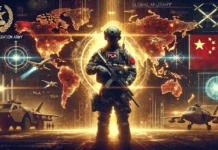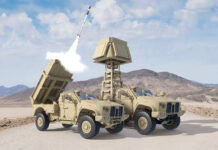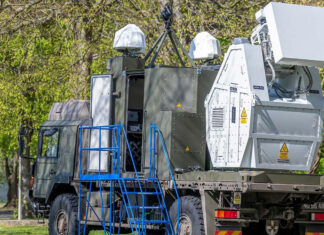Israel is growing more and more exasperated with the Obama Middle East strategy, especially in his determined effort to use diplomacy in trying to roll back Iran’s growing uranium-enrichment program. The Israelis are fully aware of the nifty trick, which small nations have used to hide their development process, dragging out the inspection by clever diplomacy, while producing sufficient fissionable material, for weapon grade nukes. In fact, Israel itself used this very trick during the sixties, by delaying US inspections long enough to construct the clandestine Dimona reactor – one of the world’s “worst kept secrets” in building a nuclear deterrent, which kept the Jewish state safe from overwhelming Islamic foes, trying to destroy it by force.
Pyongyang’s leadership has followed a similar trend, and Israeli intelligence analysts suspect, that the Tehran Mullahs are doing the same, using controversial avenues to enrich larger quantities of weapon grade uranium, or even plutonium. But some of Israel’s more experienced defense analysts regard an Iranian nuclear attack on Israel as illogical – not only due to their perception of Israel’s military superiority, but based on Tehran’s overall regional strategy, which is sometimes overlooked by sensationalist pseudo-experts on Middle East affairs. Some of these are warning that, once Iran would have a nuclear weapon, it would perhaps be willing to supply their Shi’ite Vassals in Lebanon with one or two of these weapons to strike Israel by proxy. This attitude seems even more unrealistic, as no nuclear state has ever surrendered such prized military assets to a foreign element, especially Hezbollah, which has already proven its irresponsible behavior in starting an early use of Iranian supplied medium-range rockets during the 2006 Lebanon War.
More important, in the unlikely case, in which Tehran would after all send a nuclear weapon to Hezbollah and the latter use it against Israel, there would be no doubt as to the identity of the supplier, resulting in immediate and devastating retaliation on Iran.
Moreover, Israel’s incessant preoccupation with Iran’s nuclear threat stems from an inherent political weakness, which has enhanced during the last decade, by repeated coalition-weakened governments and deteriorating social discrimination, internal tensions and growing public discontent with the political dysfunction.
Unfortunately, under such stringent circumstances there is no more powerful political tool, but repeatedly convince the public on catastrophic “doomsday” scenarios, some of which are perhaps founded, but mostly used in populist rhetoric speeches, by a hard-pressed political leadership. In fact, most of the Israeli repeatedly propagated existential concerns are amplified, by no less populist rhetoric originating by Iran’s clerical leadership and first and foremost their president, who has made the Jewish state his star opponent.
But in spite Tehran’s profound dislike of the Jewish state notwithstanding, Iran is unlikely to attack Israel with a nuclear weapon because Israel’s alleged, but well appreciated atomic arsenal, which is assessed being in orders of magnitude, larger than whatever any infant capability Iran could muster in the foreseeable future, if at all, before it is neutralized by foreign powers.
Moreover, Iran’s regional strategy is targeted at much more “safe” sightings, being within their reach, such as the Persian Gulf oil Magnates, which not only control most of the global energy reserves, but are Sunni by religion, Iran’s foremost theological enemies for centuries. For thirteen hundred years, Shia wished a power base other than Iran to unseat the Sunnis. So far, the dominating Sunnis, supported by foreign powers have prevented this from happening. Now, with the looming threat from a nuclear armed Shiite Iran and the waning power from weakened United States and Russian influence, the century long dream of Shi’ite hegemony over a Sunni Middle East could become reality. The so-called “Shia Crescent”, spanning from the Persian Gulf to the Mediterranean Sea, is Tehran’s real strategic goal, not a military and economically powerful Israel, which can defend itself.
However, with attention focused on the Israel-Iranian, fortunately so far being only verbal rhetoric dispute, one cannot overlook another element, which should haunt the Tehran clerics much more, than Netanyahu’s warnings from Jerusalem.
To Iran’s east lies Pakistan, an openly declared nuclear state, having an impressive arsenal of nuclear weapons and adequate stock of delivery systems. Of Pakistan’s odd 170 million populations, about half practice a sort of Shi’ite religion. Although for the time being political tension between Pakistan and Iran has abated, there are still powerful undercurrents, which could increase, if Iran’s nuclear ambitions become reality. The Afghan-India-Pakistan region is already a powerful powderkeg, by adding another element, charged with religious fervor into this turbulent region, this and not Israel, should be the world’s real concern, certainly not the fiery oratory exchange between Jerusalem and Tehran.
















